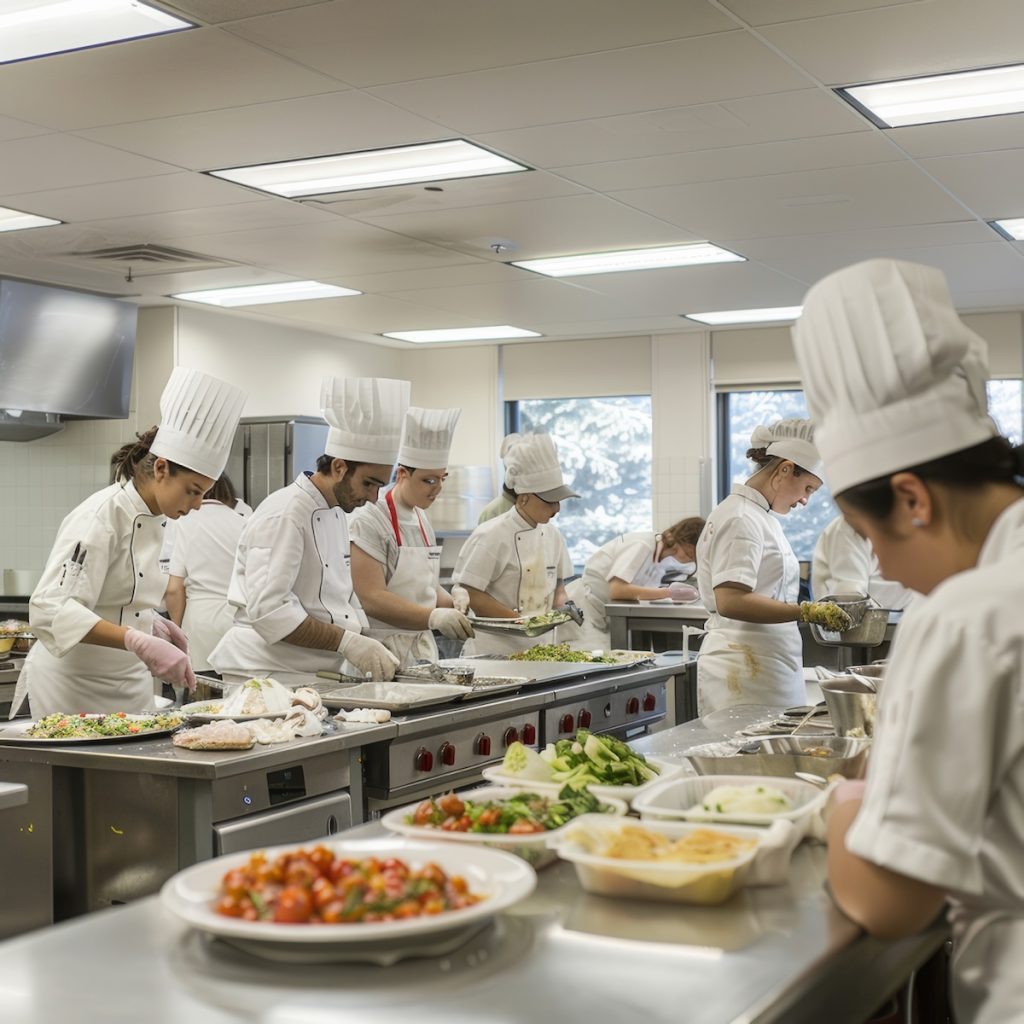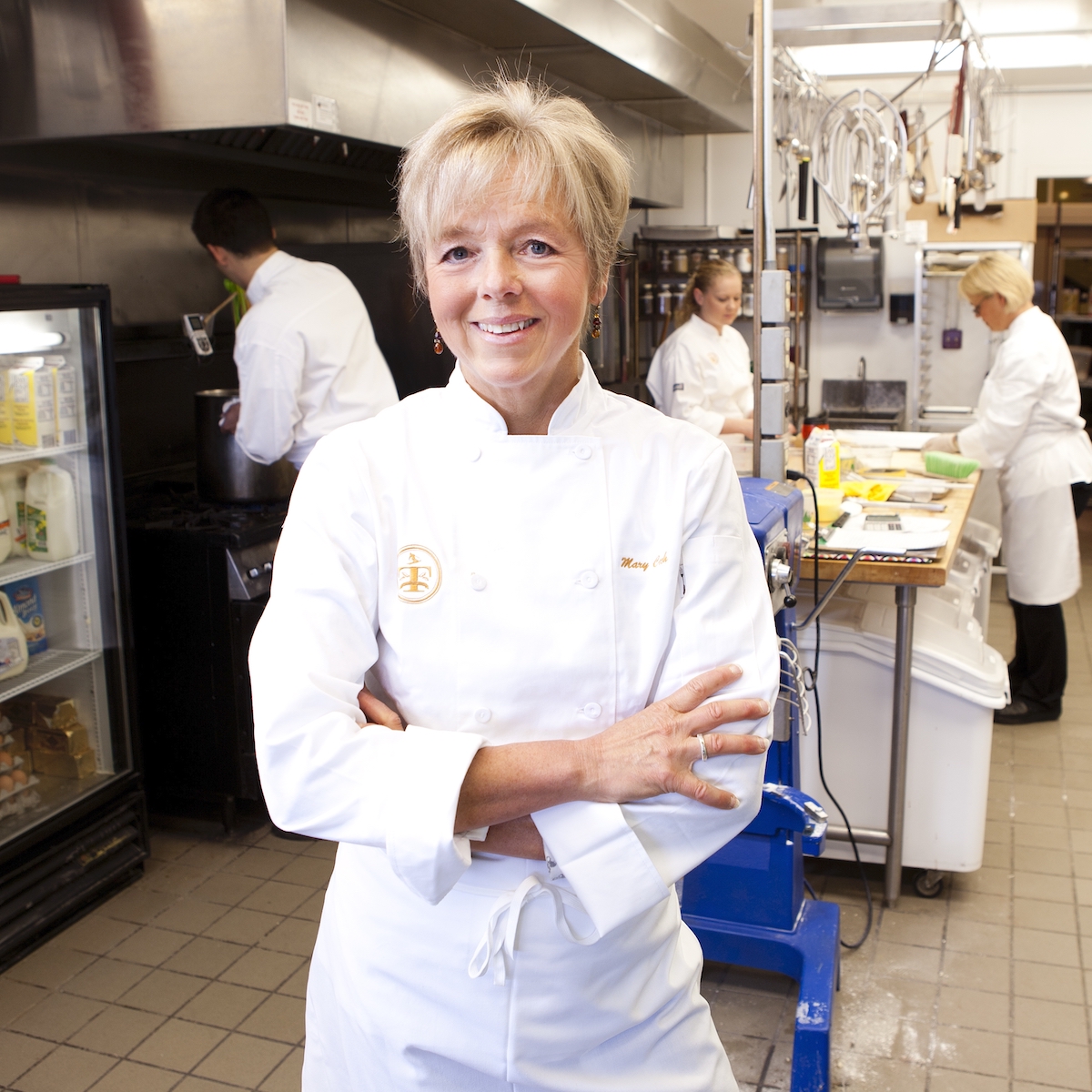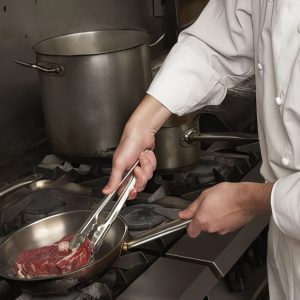Should I Go To Culinary or Baking School?
Deciding whether to attend culinary school is a pivotal choice for aspiring chefs and food enthusiasts. With the allure of professional training, structured education, and networking opportunities, culinary school promises a path to culinary excellence. However, it also comes with significant costs and time commitments.
In this post, we’ll explore the pros and cons of culinary school, offering insights to help you determine if it’s the right choice for your culinary aspirations. Whether you dream of becoming a top chef, running your restaurant, or mastering the art of cooking, this guide will provide the information you need to decide about your culinary education. Remember, this is a decision that can shape your culinary journey.
Why Culinary School?
A culinary arts degree is usually the preferred course for students who aspire to be top chefs or managers in a well-known restaurant or high-end hotel, especially if they want to start out at a higher level. Most of these highly competitive positions require formal training and hands-on experience to be considered for the job.
Most well-known culinary schools provide vigorous training and internships to facilitate the hands-on aspect of the trade. These programs can last anywhere between four and six years, while higher learning in the field (including a Master’s or Doctorate degree) is also available for those who would like to teach culinary arts in a university or academic setting.
Additional training options include programs of varying length, ranging from a few weeks to two years. These programs often specialize in teaching introductory skills, one particular cooking style, or a certain type of kitchen technology. While these courses might not grant you immediate access to the job of your dreams, they can help build a resume or give you edge in making networking connections.
The Advantages of Going
Attending culinary school offers many advantages that can significantly enhance your career prospects and personal growth in the culinary world. Here are some of the key benefits:
- Comprehensive Education: Culinary schools provide a structured and thorough education in various culinary techniques, kitchen management, and food safety. This formal training ensures a solid foundation, equipping students with essential skills and knowledge.
- Professional Mentorship: Culinary schools often have experienced chefs as instructors who can offer valuable insights, mentorship, and real-world advice. Learning directly from seasoned professionals can inspire and guide students as they navigate their culinary journeys.
- Networking Opportunities: A culinary school environment connects students with like-minded peers, alumni, and industry professionals. These connections can lead to future job opportunities, internships, and collaborations.
- Access to Resources: Culinary schools typically have state-of-the-art kitchens, equipment, and ingredients that may not be readily available to individuals learning independently. This access allows students to experiment and hone their skills in a professional setting.
- Credentials and Recognition: Graduating from a reputable culinary school adds a credential to your resume, making you more attractive to potential employers. It signifies a level of commitment and expertise that can set you apart in a competitive job market.
- Career Opportunities: Culinary schools often have strong ties with the industry, providing job placement services and internship programs. These opportunities can be crucial for gaining practical experience and securing positions in renowned restaurants, hotels, and other food-related establishments.
Attending culinary school offers structured learning, professional mentorship, networking opportunities, access to top-tier resources, recognized credentials, and valuable career opportunities, all of which can significantly benefit aspiring chefs.
The Disadvantages of Going to Culinary School
While culinary school offers many benefits, it has several disadvantages that should be carefully considered before deciding. Here are some of the main drawbacks:
- High Cost: Culinary school can be expensive, with tuition fees, equipment costs, and living expenses adding up quickly. For many, the financial burden can lead to significant debt, which may take years to repay, especially if starting salaries in the culinary industry are modest.
- Time Commitment: Attending culinary school requires a significant investment of time, typically from several months to a few years. This time commitment can be challenging for those who need to balance other responsibilities or wish to enter the workforce quickly.
- Variable Quality: Not all culinary schools are created equal. The quality of education can vary widely, and some institutions may need to provide the comprehensive training or industry connections promised. Researching and choosing the right school is crucial to avoid potential disappointment.
- Opportunity Cost: Time spent in culinary school is not spent gaining practical, hands-on experience in a professional kitchen. Starting at the bottom in a real-world setting and learning on the job can be more valuable and cost-effective than formal education.
- Stress and Pressure: Culinary school can be highly demanding, with rigorous schedules, strict grading, and intense student competition. This environment can be stressful and may only suit some, particularly those who thrive in more relaxed or self-paced learning situations.
- Limited Return on Investment: Despite the investment in education, culinary school graduates may start in entry-level positions with modest pay. The financial return on investment can be slow, making it challenging to justify the high costs for some individuals.
The disadvantages of culinary school include high costs, significant time commitment, variable quality of education, opportunity costs, stress and pressure, and potentially limited financial return on investment. Prospective students should consider these factors to determine if a culinary school aligns with their career goals and personal circumstances.
How Do I Know If It Is Right For Me?
Determining if culinary school is the right choice involves considering several factors tailored to your goals, preferences, and circumstances. Here’s a guide to help you assess if culinary school aligns with your aspirations:
- Passion for Cooking: Evaluate your passion for cooking. If you sincerely love food, cooking, and the culinary arts, culinary school can provide structured learning and professional development opportunities.
- Career Goals: Clarify your career aspirations within the culinary industry. Determine if specific roles (e.g., chef, pastry chef, restaurant manager) require formal education or if you can achieve your goals through apprenticeships, on-the-job training, or self-study.
- Learning Style: Consider your preferred learning style. Culinary school offers structured, classroom-based education with hands-on training. Culinary school might be a good fit if you thrive in a structured environment and benefit from mentorship and feedback from experienced chefs.
- Financial Considerations: Assess your financial situation and weigh the costs of tuition, fees, equipment, and potential debt against the expected return on investment (e.g., starting salaries and career advancement opportunities). Explore scholarships, financial aid, and payment plans to mitigate financial strain.
- Alternative Paths: Research alternative paths to achieving your culinary goals, such as apprenticeships, culinary workshops, online courses, or gaining practical experience in professional kitchens. Compare these options with the benefits of formal education.
- Industry Insights: Seek insights from professionals in the culinary industry, culinary school alumni, and current students. Their experiences can provide valuable perspectives on the benefits and challenges of culinary school and alternative paths.
- Personal Commitment: Evaluate your readiness for the time commitment and dedication required to succeed in culinary school. Consider how culinary school fits into your personal life, including family responsibilities, work obligations, and other commitments.
By carefully evaluating these factors and reflecting on your personal goals and circumstances, you can decide whether culinary school is the right choice for advancing your career in the culinary arts.












